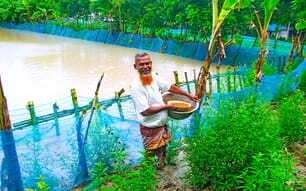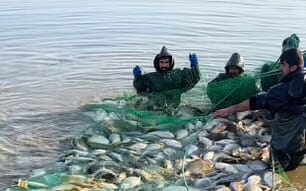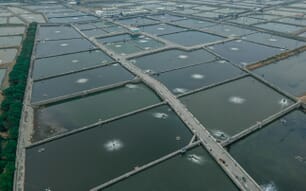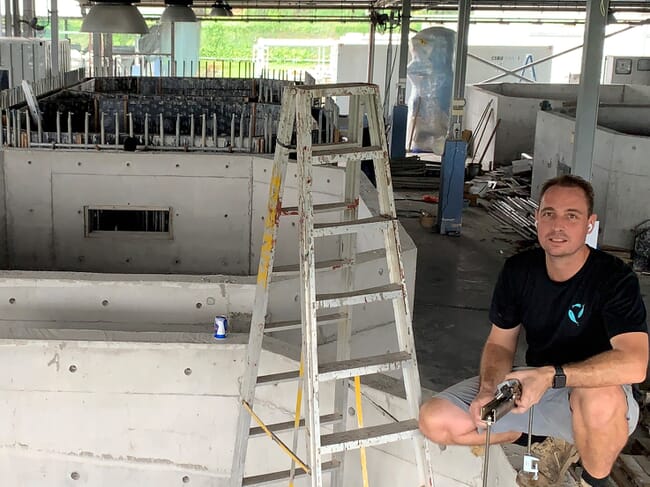
What inspired you to set up your own aquaculture company?
I have been designing, building, and operating large scale public aquariums my entire career. There are many advances in technology in the aquarium industry, unlike the seafood farming scene. A key reason for this was always to promote education and the environment. As time has progressed, it has become more evident that the seafood sector would be a better avenue to address these areas. One of my goals is to play a role in transforming this sector in Singapore (and hopefully around the globe too) by sharing what I have learnt from aquariums to build better aquaculture farms.
How did you manage to raise the funds and will you look for further funding?
At the moment, we are completely privately funded. We are blessed to have investor-partners who share the same passion in driving food sustainability. As we have built a successful 100 percent sustainable RAS, there has been keen interest from various parties to be involved in what we do. We have also shared our aspirations with the Government, and we look forward to their support in the near future.
What species are you producing (and in what quantities)?
We have been ambitious from the onset, and decided to produce species that are not typically grown in a land-based farm that operates via RAS. Our species include four-finger threadfin, coral trout and giant groupers. Although we are still in our infancy, we are already able to produce 7.5 tonnes per year, and are expanding our production volume significantly in the coming months.
Why did you opt for RAS and what are main benefits?
Singapore is land scarce, so it was necessary for us to start our farm in a land-locked space to show how we do not have to be near the sea to grow fish successfully. We can establish systems anywhere – including vacant warehouses, deserts and city centres. While there are many benefits to having a farm close to, or within the sea, there are also difficulties that come along, such as pollutants, parasites, and diseases in the water. At Atlas Aquaculture, we do not need to cart in truckloads of sea water as the brackish water we have is filtered and recycled through smartly engineered systems. Any waste from excess fish feed or fish faeces is converted into fertiliser, which is then shared with vegetable farms.
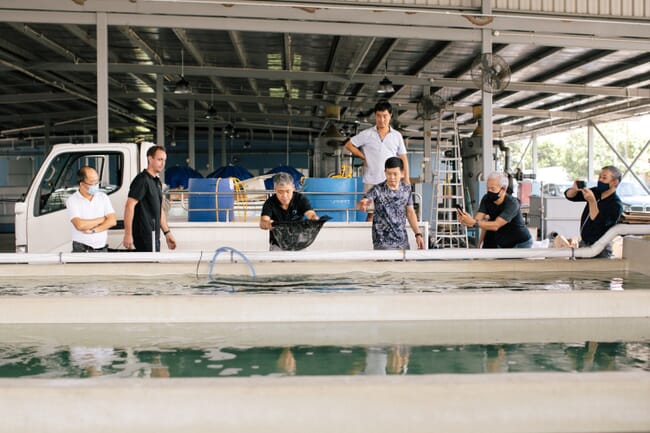
Is there potential for the farm to grow?
Absolutely. We are fortunate to have a 2.1 hectare property, and we intend to keep building until we have maximised the use of the space. We are currently building a set of new tanks and systems to expand our production capabilities and putting the finishing touches on the design to begin our breeding programme.
What does a typical day on the farm involve for you?
I enjoy starting my day early. As we DIY most of our construction, I typically get to the farm around 6.30 am to work on building things. Our farm operations team starts their work day at 8.30 am, and we begin with a 10-min “standup” where we run through operational tasks for the day. I work alongside the farm ops team till 12.30pm, and we all have a good lunch and chit chat together. Quick brainstorming discussions with the sales, marketing or administrative teams happen after lunch, and I usually have meetings with external parties thereafter. I try my best to end my work day by 7pm to get home and be able to have dinner with my family.
What are your greatest challenges at work?
I would say that regulation is a bit of a challenge. The speed at which the sector is moving, not to mention the number of new players, means that there is a huge gap between what was typically done, and what is now being done. Understandably, this makes governing the sector quite difficult. It is a work in progress and the intentions are pure, but sometimes we can be limited or restricted by regulations that are playing catch-up.
What advice would you give to others looking to join/establish new companies in the aquaculture sector?
It is a very interesting time for the aquaculture sector, and one of the best times to enter. There are so many documented inadequacies across the board, opening the doors for passionate and innovative individuals.
What’s your ultimate ambition in the sector?
I want to be able to promote the sector in a more positive light, focusing on two main areas – public perception and sustainability. There is a fairly strong negative connotation towards farmed seafood, which to be fair is not entirely unfounded. Speaking from a predominantly regional perspective, there is a lot of room for improvement. Trust and transparency are crucial in this regard. The other area is sustainability. My personal opinion is that aquaculture is absolutely crucial moving forward, with the environmental aspects being well documented. The sector has the potential to become truly sustainable , through the adoption of smart engineering, technology and education.
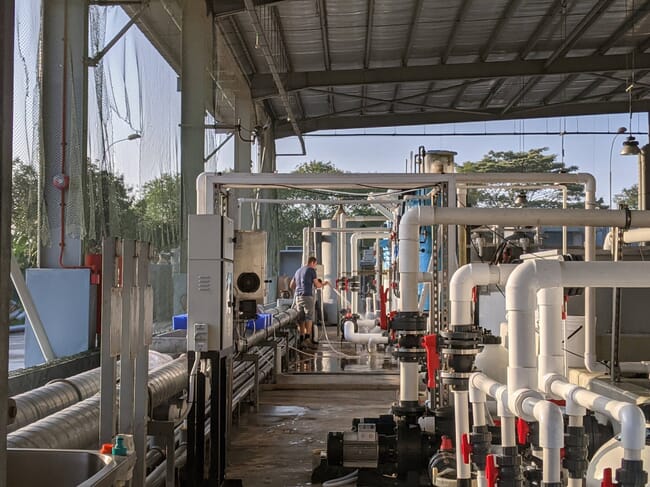
What inspired you to set up your own aquaculture company?
I have been designing, building, and operating large scale public aquariums my entire career. There are many advances in technology in the aquarium industry, unlike the seafood farming scene. A key reason for this was always to promote education and the environment. As time has progressed, it has become more evident that the seafood sector would be a better avenue to address these areas. One of my goals is to play a role in transforming this sector in Singapore (and hopefully around the globe too) by sharing what I have learnt from aquariums to build better aquaculture farms.
How did you manage to raise the funds and will you look for further funding?
At the moment, we are completely privately funded. We are blessed to have investor-partners who share the same passion in driving food sustainability. As we have built a successful 100 percent sustainable RAS, there has been keen interest from various parties to be involved in what we do. We have also shared our aspirations with the Government, and we look forward to their support in the near future.
What are your greatest challenges at work?
I would say that regulation is a bit of a challenge. The speed at which the sector is moving, not to mention the number of new players, means that there is a huge gap between what was typically done, and what is now being done. Understandably, this makes governing the sector quite difficult. It is a work in progress and the intentions are pure, but sometimes we can be limited or restricted by regulations that are playing catch- up.
What advice would you give to others looking to join / establish new companies in the aquaculture sector?
It is a very interesting time for the aquaculture sector, and one of the best times to enter. There are so many documented inadequacies across the board, opening the doors for passionate and innovative individuals.
What’s your ultimate ambition in the sector?
I want to be able to promote the sector in a more positive light, focusing on two main areas – public perception and sustainability.
Farmed seafood has a fairly strong negative connotation, which to be fair is not entirely unfounded. Speaking from a predominantly regional perspective, there is a lot of room for improvement. Trust and transparency are crucial in this regard. The other area is sustainability. My personal opinion is that aquaculture is absolutely crucial moving forward, with the environmental aspects being well documented. The sector has the potential to become truly sustainable, through the adoption of smart engineering, technology and education.


